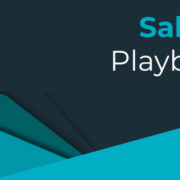Expert Guide to Diversity Recruitment
Recruiting With Purpose
The changing demographics of the workforce and an increasing emphasis on social justice have made diversity, equity, and inclusion (DEI) more important than ever for organizations. As an HR professional, you play a crucial role in shaping your organization’s diversity recruitment strategy.
This article offers a comprehensive guide on how to drive your inclusive hiring strategy forward, targeting key areas for improvement and innovation.
1. Understanding the Importance of Inclusivity in Branding
In today’s world, job seekers are incredibly discerning about the companies they choose to work for. They look for employers that showcase inclusivity not just in their recruitment processes but in their overall brand.
- Evaluate your talent brand: Is it speaking to who you want to attract?
- Encourage feedback: Regularly survey candidates to refine your value proposition. Remember, your brand’s inclusivity, or lack thereof, is evident before you connect with potential candidates. Make sure your talent brand speaks volumes about your commitment to DEI.
2. Being an Ally for Underrepresented Groups
As an HR professional, you have a significant role in influencing and sponsoring promising team members from diverse backgrounds.
You can do this by practicing the ABCDs of sponsorship: Amplifying, Boosting, Connecting, and Defending.
It’s also important to ensure that all levels of your organization are held accountable for lifting others. By actively demonstrating your investment in Diversity, Equity, and Inclusion (DEI) from the top down, you reinforce your organization’s commitment to supporting underrepresented groups.
3. Removing Barriers to Entry
To enhance diversity in your workforce, consider expanding your recruitment efforts to a variety of educational institutions, encompassing a broader range of backgrounds and experiences.
Embrace the use of virtual interviews and the provision of remote work opportunities, especially for underrepresented groups such as women, people of color, and individuals with disabilities.
This approach not only fosters inclusivity but also helps in breaking down traditional barriers to entry. Building a brand and a business that is openly and proactively inclusive is crucial. It’s about creating an environment where diversity is not just welcomed, but actively sought after, ensuring that everyone has an equal opportunity to contribute and succeed.
4. Committing to Equity and Proving It
Transparency in career advancement and salary is essential for promoting equity within the workplace. To achieve this:
- Implement standard operating procedures dedicated to maintaining salary transparency and equitable promotion practices, ensuring that underrepresented groups, including women and other minorities, are fairly considered.
- Actively work towards promoting women and other underrepresented groups. This involves creating opportunities at all levels of the organization and making sure that no one is left behind, thus demonstrating a strong commitment to equity and inclusivity.
5. Leveraging Employee Resource/Affinity Groups
Employee resource or affinity groups play a crucial role in fostering community within your company and shaping its strategic direction. Encouraging open discussions about important issues and allowing employees to share experiences and perspectives on Diversity, Equity, and Inclusion (DEI) topics, such as equal pay, are essential.
These groups not only help prospective candidates envision themselves as part of your workplace, but they also ensure that all employees feel valued, heard, and represented. This approach contributes to a more inclusive and supportive work environment.
6. Supporting Small Program Pilots
Encouraging your team to start small with new initiatives can bring substantial changes to your strategy. To implement this effectively:
- Initiate a pilot project, such as a strategic partnership with student psychological services at a partner school. This focused approach allows for controlled experimentation.
- Set clear success metrics and articulate the value and potential scaling strategies if the pilot is successful. Starting with smaller initiatives enables you to test new ideas without committing extensive time or resources, allowing for more agile and responsive strategy development.
7. Choosing the Right DEI Metrics
Selecting and regularly sharing the right Diversity, Equity, and Inclusion (DEI) metrics is vital for ensuring transparency and accountability in your organization. To do this effectively:
- Determine which DEI metrics are most relevant to measure and establish a schedule for how often they should be evaluated and updated.
- Consistently share these results within your organization to maintain transparency. It’s important to remember that openly communicating your DEI goals and strategies not only underscores their importance to your organization’s values but also resonates with a generation driven by ethical considerations.
8. Creating an Inclusive Talent Pipeline
Creating an inclusive talent pipeline is a key aspect of a successful diversity recruitment strategy. This involves actively sourcing talent from underrepresented groups for specific roles and implementing hiring best practices. To achieve this, consider reaching out to untapped populations such as students from Historically Black Colleges and Universities (HBCUs), professional organizations for women in STEM, or groups focused on helping veterans transition to the private sector.
Additionally, foster open conversations about diversity and inclusion through platforms like social media, keynote speeches, and company newsletters, and always encourage referrals. By actively seeking out and engaging with underrepresented groups, you can create a talent pipeline that is both diverse and inclusive.
9. Ensuring Fair Hiring Processes
To mitigate unconscious bias in hiring and ensure fairness, consider the following steps:
- Stay aware of potential biases within your organization and actively work to address them.
- Implement structured interviews to standardize candidate assessments. This helps in evaluating all candidates on the same criteria.
- Shift to panel interviews instead of one-on-one interviews. This approach brings diverse perspectives to the hiring process and reduces the impact of individual biases.
10. Retention of a Diverse Workforce
Retaining a diverse workforce is equally important as recruiting one. To achieve this, it’s crucial to ensure that internal hiring processes are fair and transparent.
Providing employees with the necessary resources and opportunities to grow is also key. Offering a seat at the table for diverse voices and creating a culture where everyone feels safe and valued can significantly address retention issues. By focusing on these areas, you can foster a more inclusive and supportive environment that benefits all employees.
11. Promoting Internal Fairness and Inclusivity
To promote internal fairness and inclusivity, consider the following essential steps:
- Evaluate your current hiring practices to identify areas needing improvement.
- Strive to promote from within whenever possible, ensuring that these decisions are free from bias against underrepresented groups.
Need Expert Help?
Implementing a successful inclusive recruiting plan involves more than just attracting diverse candidates. It requires a comprehensive approach that addresses all aspects of the recruitment process, from the initial stages of attracting talent to onboarding and retaining employees.
Following these tips and taking a proactive approach to diversity recruitment can create a more inclusive and equitable work environment.
Need help finding top talent? Sign-up with Rainmakers!










